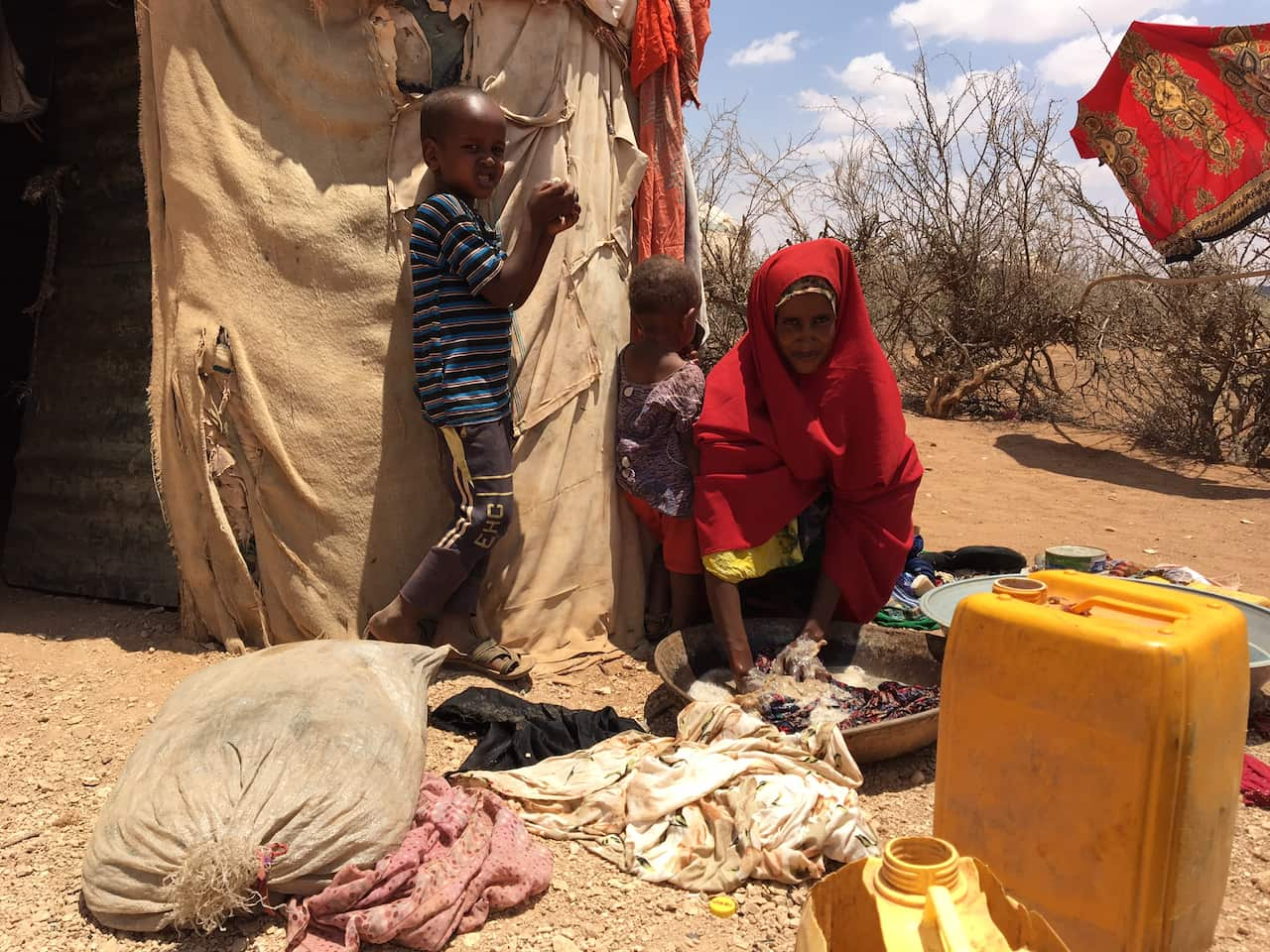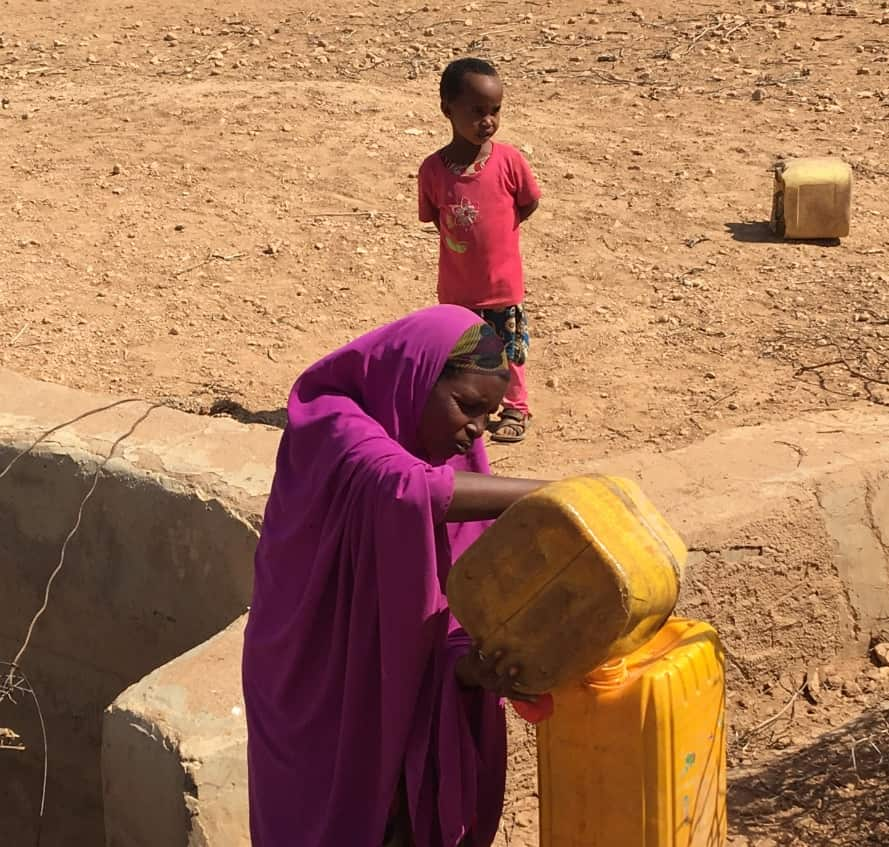In an Islamic School in the village of Qorijabley, south-east of the capital Hargeisa, rows of desks are empty.
There are normally 25 children in a class. Today there are only six.
The rest of the children are suffering severe diarrhea and vomiting bugs.
Teacher Abdirahman Hassan Ibrahim said the drought was harming his students’ education.
"Extremely affected. There was a time where there was no class at all because of the drought," Mr Abdirahman told SBS News.
Just a few years ago the village was thriving with more than 40,000 livestock. Now, only a couple of thousand animals remain.
The skeleton of dead animals in the area is a reminder of what used to be.
In the middle of the day there is nowhere to escape the scorching desert sun.

Men gather under a hut and share tea. Women collect any dirty water they can find before resting against a concrete wall on the other side of the village.
Village Leader Ibrahim Abdi Egeh said there was no water in the area.
"Seventy-six wells have been dug for animals to get the water and this morning there’s no water for the animals," he said.
Villiger Maryan Axmed says her daughter Safa is fighting for her life. The one-year-old has a disease affecting her brain.
Maryan said she tried to take her daughter to a medical facility but had to turn around because she had nobody to care for her other seven children.
"I asked the doctor what caused this disease. He told me this is caused by malnutrition which happens normally during pregnancy,” Ms Axmed said.

The closest medical centre is 100 kilometres away.
In just the past 12 months up to 20 pregnant women have passed away and dozens of children have fallen sick because they have not been able to make the long treacherous journey.
For the past month, four men have been working tirelessly to prepare a large truck full of charcoal to sell at the markets.
With the money they make they will only be able to buy enough pasta, rice and sugar to last their families for a few weeks, because food prices have skyrocketed.
Two million people in the breakaway Horn of Africa republic are currently facing starvation.
The Ilyas family goes hungry most days. Father Ilyas Abdilahi Hugur said his children are suffering.
"For the last three years the drought was very long and the children were suffering from malnutrition,” Mr Ilyas said.
While they make do with what they have, they know conditions are only going to worsen.
They can only survive for so long like this.
Kirsty Johansen travelled to Somaliland with the Australian Red Cross as part of their East Africa Food Crisis Appeal.
